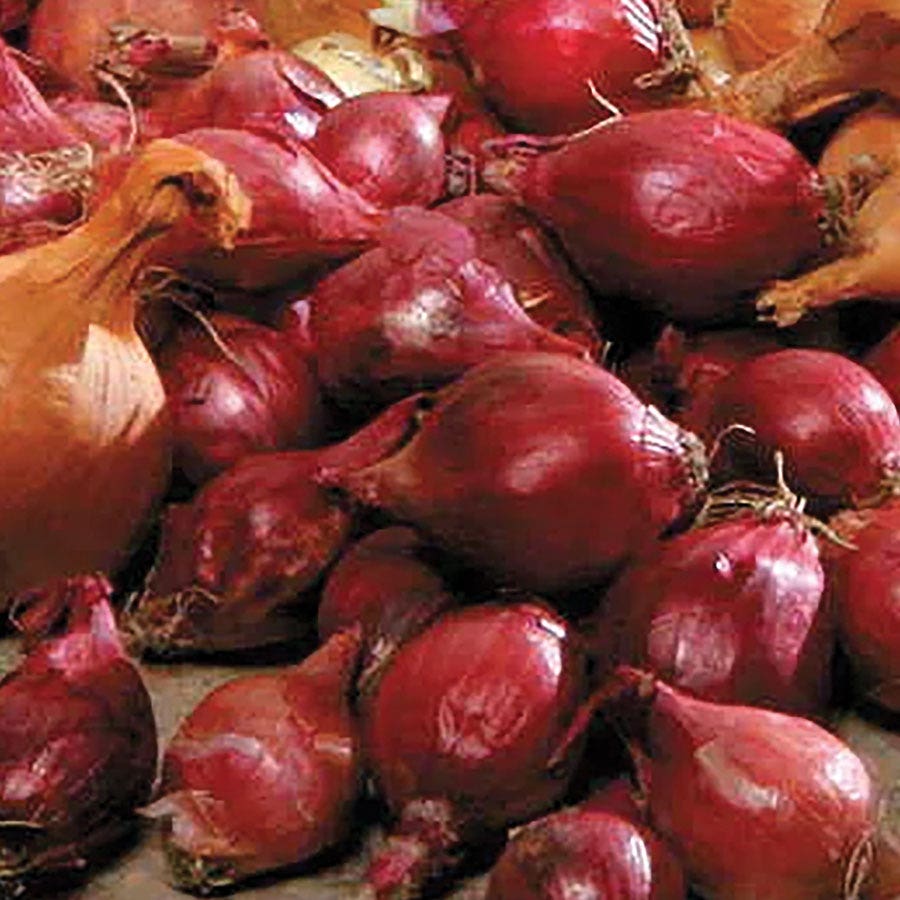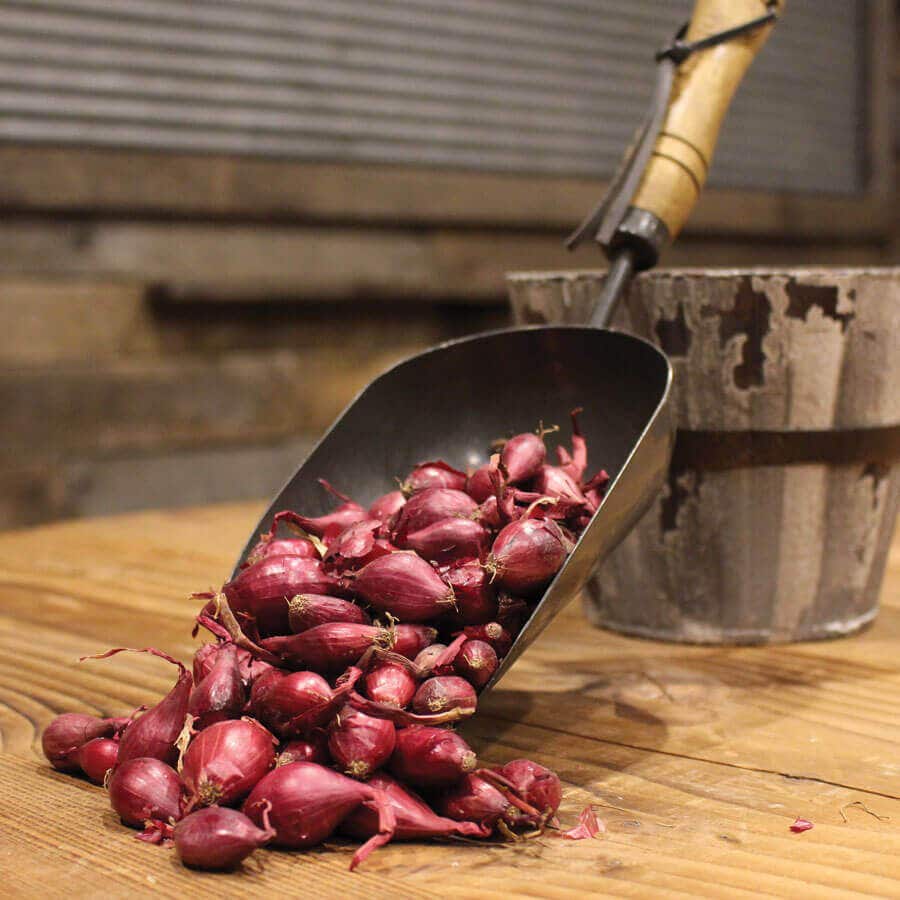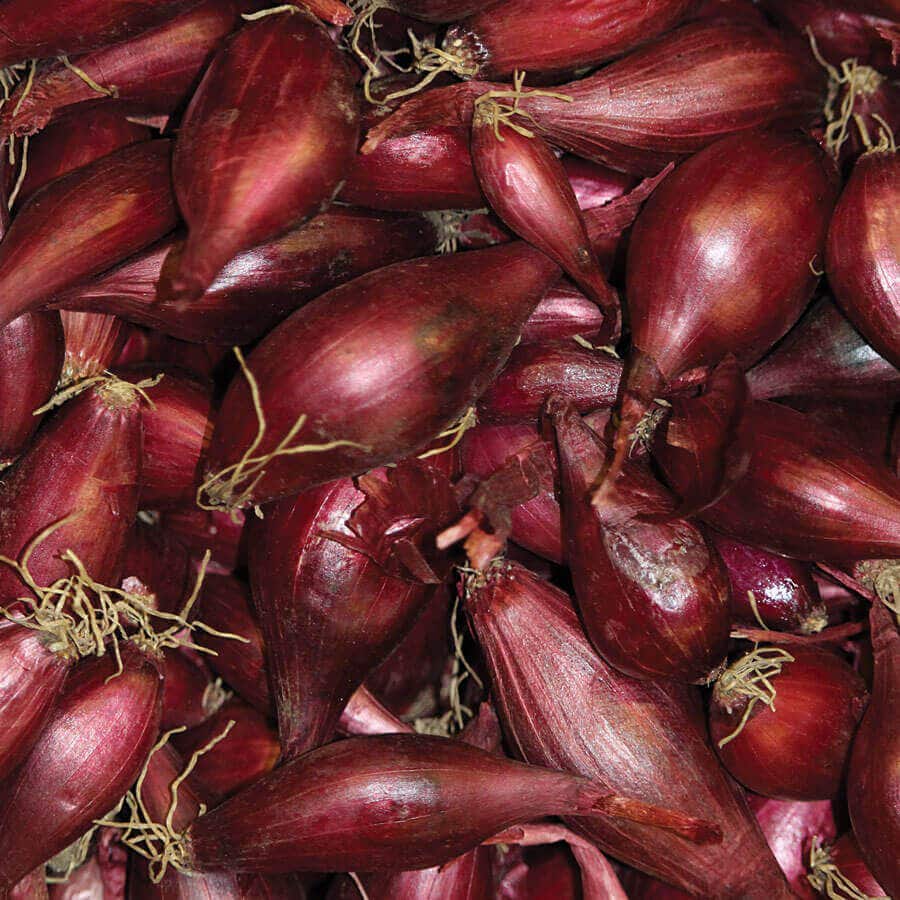Red Onion Sets
Red Onion Sets
Zone compatibility details
Understanding the Prices on Our Product Pages
When shopping on our site, you might notice different types of prices listed for products. Here’s a quick guide to help you understand what each price means:
- Regular Price: The price before any discounts, typically reflecting the median price from the past 90 to 180 days, excluding special promotions and clearance events.
- Now Price: The updated price of an item after a reduction from the regular price. Now Prices are often limited to a short time frame and offer the opportunity to save.
- MSRP: Manufacturer's Suggested Retail Price, provided by the manufacturer as a benchmark to highlight the value of our current pricing.
Please note that product prices are subject to change without notice.
Couldn't load pickup availability
Your ZIP code ✎
Zone compatibility details
This variety’s zone range
—
My hardiness zone
—
The USDA hardiness zones offer a guide to varieties that will grow well in certain climates. Each zone corresponds to the minimum winter temperatures experienced in a given area. Make sure that your hardiness zone lies within the zone compatibility range of this variety before ordering.
Fall Shipping Schedule
Fall Shipping Schedule and Zone Opening Earliest Ship Dates
| Shipping For | Earliest Ship Dates |
|---|---|
| Zones 1–6 | Most products begin shipping mid-September |
| Zones 7–13 | Most products begin shipping late September |
| Peony | Begins shipping early October to all zones |
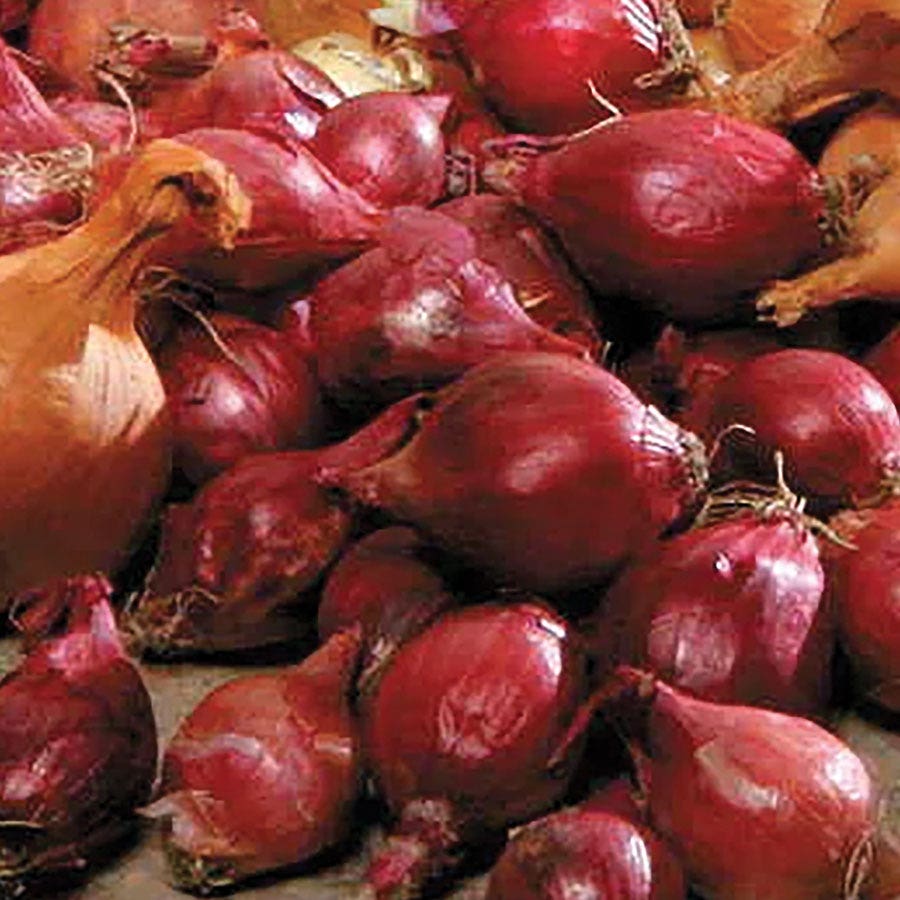
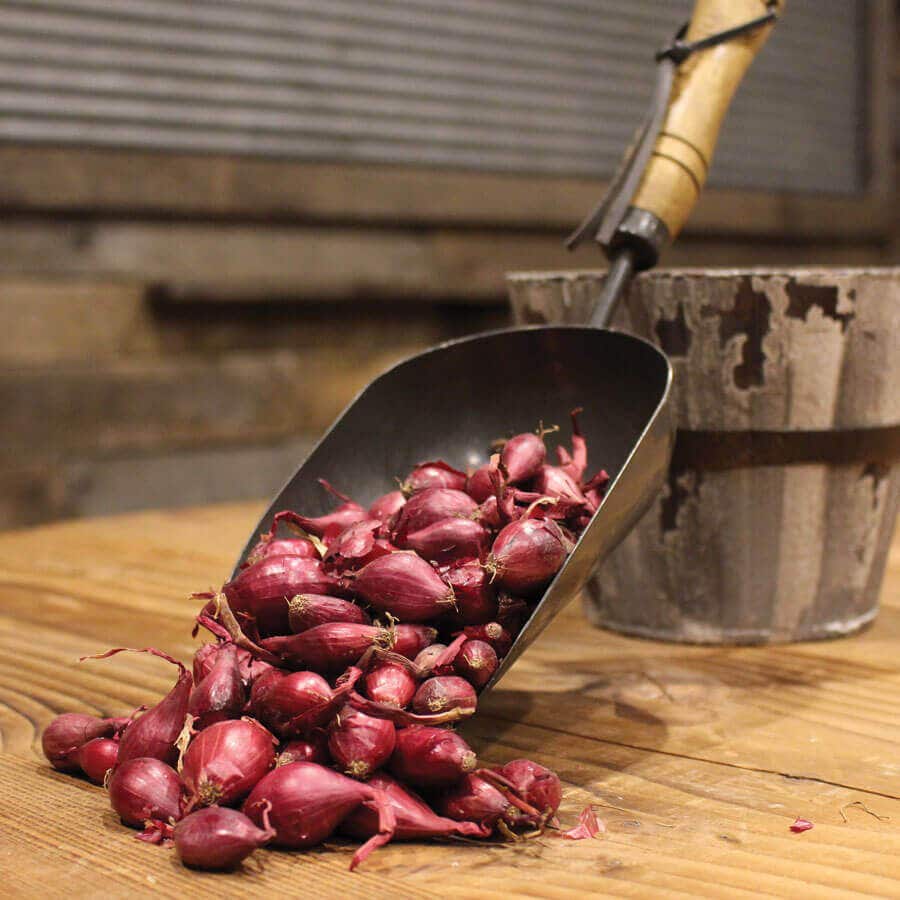
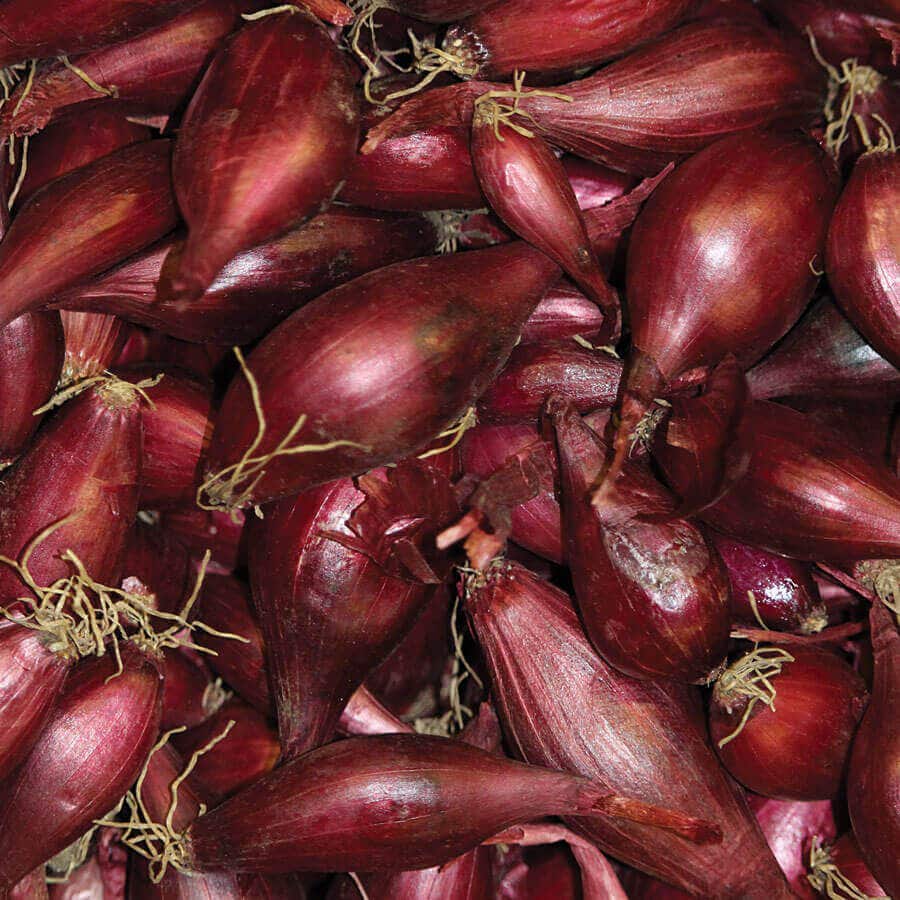
Grow Zone
4 - 7
Mature Height
12
Mature Width
Sun / Shade
Full Sun
Bloom Size
need bloom size meta
Tomato Fruit Set
Days To Maturity
Fruit Weight
Soil Tolerance
Normal, loamy
Moisture
Moist, well-drained
Description / Red Onion Sets
Days to Maturity: 85
An open-pollinated, Wethersfield type (a historic variety of renown) and Karmen variety, Red Onion is grown as a bulb vegetable. The plant sets medium-sized, flattened bulbs with excellent purple-red color, internal red concentric circles, and strong, pleasant flavor. Use grilled, roasted, pickled, or raw on salads and sandwiches. Onions are a good source of folate and vitamin C. Storage potential good. This variety can also be grown as green onions.
This plant is a member of the amaryllis family (Amaryllidaceae). Typically grown as an annual, the onion is an herbaceous biennial plant with an upright habit of linear, cylindrical, hollow, glaucous leaves that arise in a basal rosette and are typically bluish green in color. The plant has a medium growth rate.
Onions are great companion plants in the garden. They naturally deter certain garden pests, like aphids, Japanese beetles, sugar beet-flea beetles, deer, and rabbits. Onions can also improve the flavor of some of their companions, while some companions, like chamomile and summer savory, can improve the onion's flavor. Scattering them around the vegetable garden helps to produce healthier harvests.
Think of onions as a leaf crop, not a root crop. They prefer full sun and loose, fertile, moist, well-drained soil with a pH of 6.2 to 6.5. A lower or higher pH may result in poor bulb quality or small yields. Long day onion varieties grow well in the northern regions with 14 to 16 hours of day length in the summer. The more sun and space between plants, the bigger the bulb. Onions have shallow root systems and need consistent moisture. Onions are heavy feeders. Adding manure or compost to the soil several weeks before planting (or the winter before) and applying fertilizer when planting and again when plants have 5 to 6 leaves increases plant size. And since each leaf represents one ring of the onion bulb, more leaves equal more rings, resulting in bigger bulbs. Keep beds free of weeds, which will compete with the onions for water and nutrients. To avoid disease, practice crop rotation, planting onions in a different location every year.
A cool-season vegetable, one of the first to be planted in the garden, Red Onion Sets can be direct sown into the garden as soon as the soil is workable in early spring, weeks before the last frost-free date, for a summer harvest. But they can also be started indoors and transplanted, spring and fall. Planting sets in midsummer will produce a fall or spring harvest. They need cold temperatures to germinate and grow. Plant shallowly and early but protect plants from heavy frost with row covers.
Harvest onions when two-thirds of the leaves fall over and turn brown. However, if you see onions that are bolting and setting flower buds, snip the buds to prevent the bulb from splitting and harvest and eat those onions first, the sooner the better. Leave harvested onion lying in the garden for 1 to 2 days to dry, if weather permits; continue drying them for 2 to 3 weeks in a cool, dry, sunny location; and once completely dried, store them in a dark, dry environment in mesh bags or crates with good air circulation. Onions that have bolted do not store well.
Onion sets are small onion bulbs grown in the previous season. The partially formed bulbets are around ¾ inch in diameter, making them easier to plant than seed. They develop into full-size bulbs quickly after planting, in approximately 3½ months. Sets tend to produce stronger, more vigorous plants compared to seed, ensuring larger yields.
Product Details
SKU: 33700-PK-80
Genus: Allium
Species: cepa
Item Form: Bulb
Light Requirements: Full Sun
Moisture Requirements: Moist, well-drained
Soil Type: Normal, loamy
Harvest Season:- Late Summer
- Mid Summer
Uses:- Beds
- Containers
- Cuisine
- Foliage Interest
- Outdoor
- Easy Care Plants
- Edible
- Fragrance
- Pest Fighter
- Rose Companions
State Shipping Restrictions: GU, HI, ID, OR, PR, VI, WA
*Does Not Qualify for Additional Discounts
